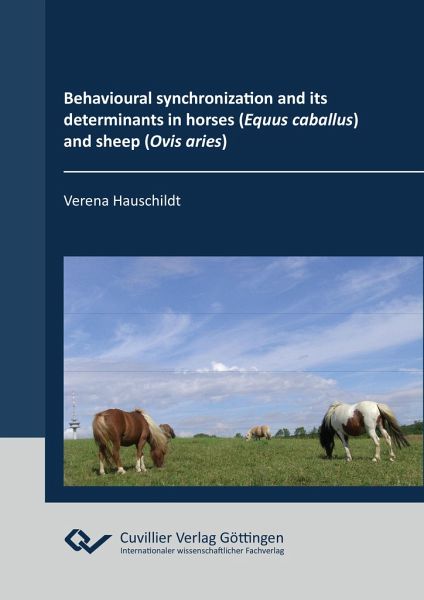
Behavioural synchronization and its determinants in horses (Equus caballus) and sheep (Ovis aries)

PAYBACK Punkte
0 °P sammeln!
Socially organized animals have to synchronize the timing and directions of their movement decisions, in order to maintain group cohesion. To what extent social and environmental mechanisms trigger behavioural synchronization is still poorly understood. When housing management restricts space availability or predetermines feeding schedules, synchronization may develop as a random phenomenon due to external cues. This thesis investigated social and environmental determinants of behavioural synchronization in horses and sheep. Deeper understanding of what constitutes behavioural synchronization ...
Socially organized animals have to synchronize the timing and directions of their movement decisions, in order to maintain group cohesion. To what extent social and environmental mechanisms trigger behavioural synchronization is still poorly understood. When housing management restricts space availability or predetermines feeding schedules, synchronization may develop as a random phenomenon due to external cues. This thesis investigated social and environmental determinants of behavioural synchronization in horses and sheep. Deeper understanding of what constitutes behavioural synchronization is essential in order to adequately classify behavioural changes related to synchronization, and to furthermore enable predictions of management problems in group housing of animals.













